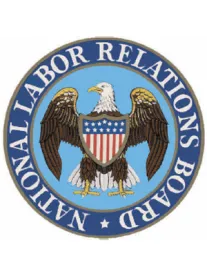In the first test of the National Labor Relations Board’s 2011 “successor bar” rule, the federal appeals court in Boston has upheld the NLRB’s decision that the union is protected from decertification after a change of ownership at the unionized company for at least six months. National Labor Relations Board v. Lily Transp. Corp., No. 15-2398 (1st Cir. Mar. 31, 2017).
The Court ordered Lily Transportation Corporation to bargain with the International Association of Machinists, the union that represented the drivers at Lily’s predecessor.
The First Circuit has jurisdiction over Maine, Massachusetts, New Hampshire, Puerto Rico, and Rhode Island.
Background
The case arose when Lily obtained a contract to distribute auto parts. Lily’s predecessor, Pumpernickle Express, had filed for bankruptcy and, when it obtained the contract, Lily hired many of Pumpernickle’s drivers.
The ex-Pumpernickle drivers constituted a majority of Lily’s drivers at that location and the union requested Lily recognize and bargain with it. Lily refused, claiming that a majority of the drivers signed statements that they no longer wished to be represented by the union. The union filed an unfair labor practice charge with the NLRB, claiming that Lily’s refusal to bargain constituted an unfair labor practice.
Successor Bar
The successor bar doctrine has been reviewed by the Board on several occasions. In 1975, the Board rejected a successor bar in Southern Moldings, Inc., 219 NLRB 119, holding that a successor union had only a rebuttable presumption of continued majority status. In St. Elizabeth Manor, Inc., 329 NLRB 341 (1999), the Board adopted a different successor bar rule, holding a successor union enjoyed an irrebuttable presumption of majority status for a “reasonable” (but undefined) time. Three years later, the Board reversed position again in MV Transportation, 337 NLRB 770 (2002), reverting to the rebuttable presumption. In UGL-UNICCO Serv. Co., 357 NLRB 801 (2011), the Board reversed that decision and set the irrebuttable bar period at six months for situations where the successor employer recognized the union and adopted the employees’ existing terms and conditions of employment, and at 12 months where the successor recognizes the union but unilaterally sets new terms and conditions of employment for employees.
NLRB Decision
Under the UGL successor bar rule, Lily could not challenge the union’s representative status for at least six months. The NLRB refused to consider Lily’s evidence that the employees did not want to be represented by the union. It held Lily had an obligation to recognize and bargain with the union. Lily appealed the NLRB decision to the U.S. Court of Appeals for the First Circuit.
First Circuit Decision
Lily argued at the appellate court that the successor bar rule violated employee rights under Section 7 of the National Labor Relations Act, which allows employees to choose or reject union representation. It argued that in successor situations, employees should have the right to choose whether they want to go forward with a new employer with the old union as their representative. Lily also argued the Board’s seesawing between an irrebuttable and a rebuttable presumption of majority status required no judicial deference to the Board’s present administrative rule, which it would have enjoyed if consistently applied.
The Court rejected both arguments and enforced the NLRB’s bargaining order.
Rejecting the argument that the irrebuttable presumption interfered with employees’ Section 7 rights, the Court weighed the two purposes of the NLRA:
-
protection of employee rights to choose to be represented; and
-
the need to ensure labor stability.
The Court found the imposition of a six-month bar was not significantly restrictive to Section 7 rights and it served the purpose of enforcing labor stability at a time when “… the entrance of new management can destroy the prior modus operandi among union, employer, and employees.” The Court noted that in successor situations, employees often could blame the union erroneously for the loss of the predecessor employer and a short respite could serve the purpose of allowing a reasonable examination of representative status.
As to the Board’s flip flop between rebuttable presumption and irrebuttable presumption of majority status, the Court held that when an agency changes course, it must “‘provide reasoned explanation for its action,’ which ‘would ordinarily demand that it display awareness that it is changing position.’” (Quoting FCC v. Fox Television Stations, Inc., 556 U.S. 502, 515 [2009].) The Court held the Board’s decision in UGL did this. It pointed out that the UGL Board had examined the history of mergers and acquisitions, noting the large increase in these transactions from the time the rebuttable presumption was adopted in 1975 until 2011, when UGL was decided. The Court stated that the Board recognized this increased number of mergers and acquisitions created significantly more successor situations, leading to a greater level of instability and a greater burden on the agency as well. Therefore, the Court held the Board adequately explained the reason for changing its position.
Further, the Court noted the Board addressed concerns that had arisen the last time the irrebuttable presumption was imposed, such as that with an irrebuttable presumption, the period during which employees would be unable to exercise their choice concerning representation could be extended significantly. By establishing a firm period for the irrebuttable presumption at six months, rather than the less clear “reasonable period” under St. Elizabeth Manor, the Board addressed concerns raised by the irrebuttable presumption, the Court said.
Implications
The First Circuit’s decision makes it clear that courts generally will continue to defer to the Board in giving weight to the objectives of the NLRA. Employers facing successor situations will be severely restricted in attempts to avoid dealing with the predecessor’s union. This should be a consideration before entering into purchase or merger agreements.






 />i
/>i

